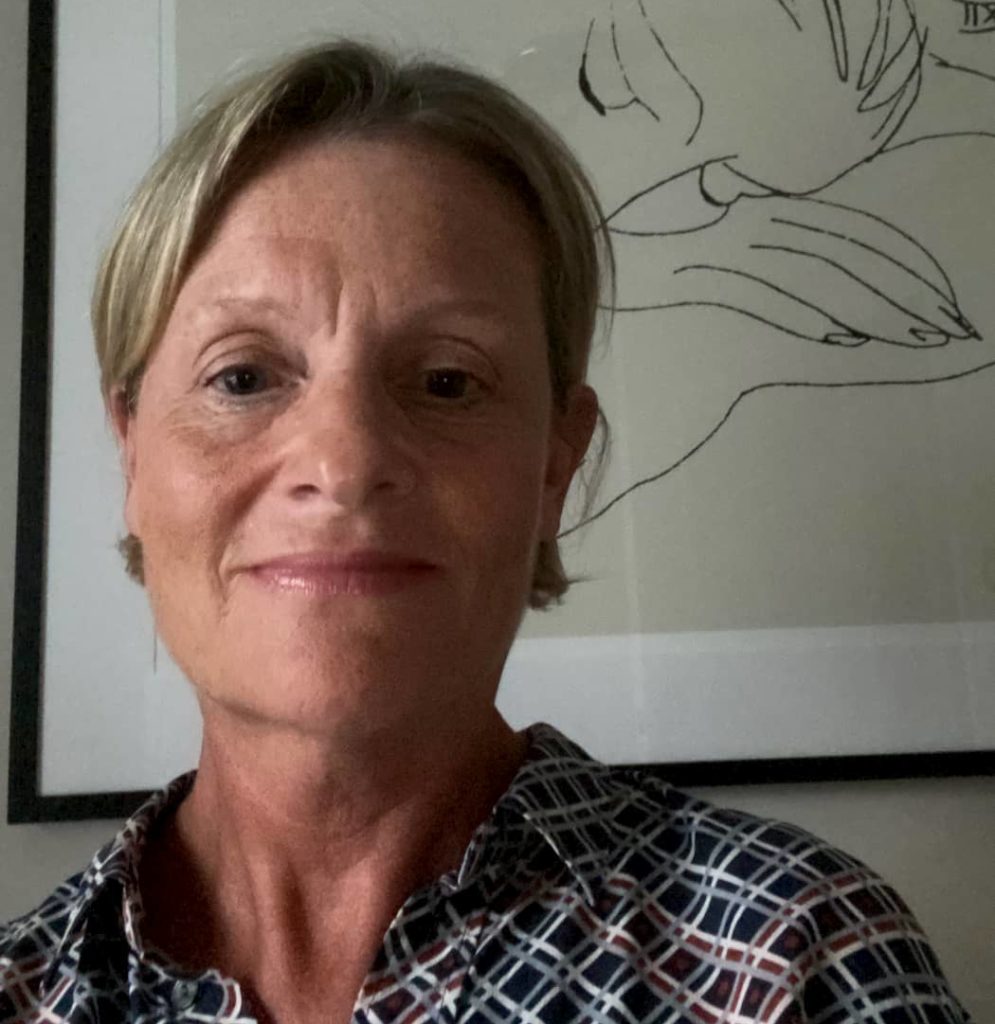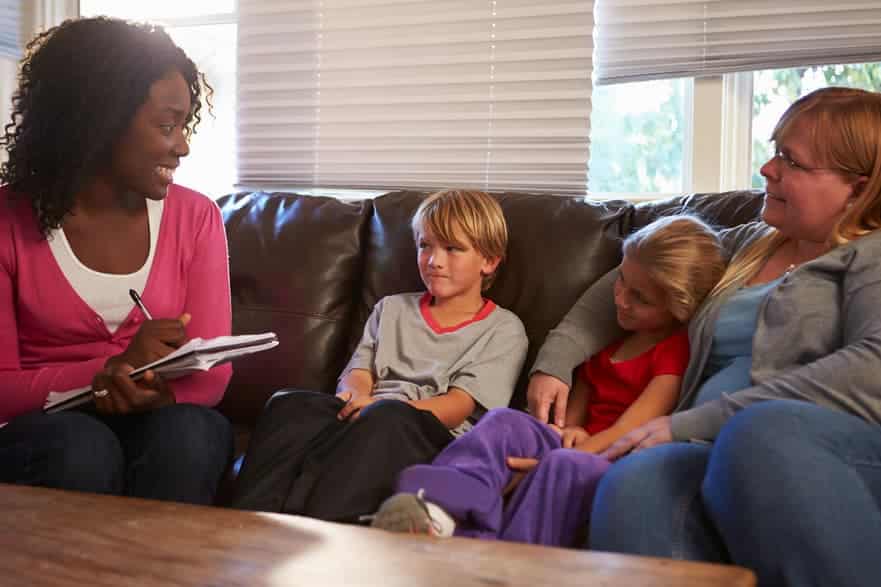Clare Jerrom speaks to Independent Social Work Mary Cullen about her experience as the lead assessor on the MFA model and how it helps vulnerable children and families.

Effective information-sharing, experienced professionals from various disciplines working together collaboratively and an abundance of observations forming a clear and transparent evidence base are just a few of the benefits of the Multi-Disciplinary Family Assessment, according to Independent Social Worker Mary Cullen.
Furthermore, the MFA is carried out in the familiar surroundings of the families’ own home while Family Support Workers can ensure children are safeguarded effectively.
Mary, who has been registered as an Independent Social Worker with WillisPalmer for eight years and qualified for 16 years’ experience, has been involved with the MFA model since its inception in 2018 and taken the role of leading ISW in the majority of cases thus far.
“The model means that we have my social work evidence, a wealth of information from the Family Support Workers based on their observations of the family during the assessment and the further expert opinion from other professionals involved including psychologists and psychiatrists,” said Mary.
“It provides a more rounded evidence base of expert opinion than a parenting assessment carried out in isolation and means that we can work to the parents’ strengths to help them to move forward with their child or children,” she added.
Anxiety-provoking
Many of the cases involve newborn babies. While parents cannot be assessed by social workers or psychologists before the baby is six weeks old, where a referral has been made, Family Support Workers can begin work with the family as soon as they return home from hospital following the birth of the baby. FSWs typically provide 24/7 support at the start of the intervention to provide practical and emotional support to the family and their observations recorded after every shift are sent to Mary as the leading assessor to provide her with a constant update around the families’ progress and also to form the evidence base to her final parenting assessment completed at the end of the eight weeks.
Nevertheless, as the leading ISW, Mary is involved with the case immediately after referral, engaging with the Family Support Workers and reading their observations while being available for support 24/7 both for the families, the FSWs and the local authority referring social worker. Family Support intervention throughout is key to the success of the model, as is a psychological assessment of the families early on to identify mental health problems including depression, anxiety or Borderline Personality Disorder, all of which can impact on a parent’s behaviour. A risk assessment is typically carried out by the local authority social worker prior to the MFA commencing.
“Firstly, I visit the family and explain what the assessment entails, what will happen and answer any questions they may have. It is naturally anxiety-provoking having someone in your house 24/7 observing what you are doing but I try and answer any concerns that they may have and allay any fears,” explained Mary.
“I am in regular contact with the FSWs, discussing their observations and finding ways to work with the family going forwards. While the level of supervision is intense initially, we look to reduce this as this assessment continues, providing there are no safeguarding concerns and this would all be discussed with the referring local authority social worker to determine a way forward while ensuring the baby is safe,” she added.
Mary will then keep in contact with the local authority throughout the process while she liaises with the other professionals involved. “It really is partnership working,” she added.

Hostility
Occasionally, families can be hostile to the idea of the assessment or their anxiety around the assessment combined with sleep deprivation with a newborn baby and raging hormones may result in them clashing with Family Support Workers.
“In life you come across people that you don’t necessarily agree with. Some parents struggle with relationships anyway and don’t always recognise that how they react to a situation is important and can impact on their children as they are the role model. These cases are very complex,” said Mary.
“We have had situations where parents have been hostile towards Family Support Workers or refused to work with them, but we have never ended an assessment due to parents being hostile, We do our best to work with the family and ultimately to prevent them from being separated from their baby. We look at ways round situations, such as removing a Family Support Worker from a case or having two FSWs assigned to the case during each shift. This is not attributing blame towards the FSW or the parent, but we know that if a situation is causing the family distress then we will not see them at their best and so we will adapt the model accordingly,” added Mary.
Sometime the parents may initially be hostile but accept that this assessment, is in as much of a natural environment as you get and is preferable to foster care or a residential unit. “I’ve worked in a residential unit,” said Mary, “And it is not a natural environment for parents to be assessed in and only adds to the stress already felt by the parent.”
“Most families are ready for the assessment, they are struggling and the bottom line is that this is a court-directed assessment. We are trying to de-escalate the situation and identify the behaviour or level of anxiety that is affecting the family,” she adds. “We are working with the parents any way we can to give them the opportunity to parent their child.”
Where problems do arise, Mary liaises with Dave Wareham, WillisPalmer’s Head of Services or our Family Support Co-ordinator Fay Roffe and she says the role is essential to provide the multi-disciplinary team with support.
Empathy
When the case involves a newborn baby, Mary has to ensure that the FSWs are kept updated with all the latest guidance on the healthy way to feed, wind and put a baby in their cot to sleep. “A lot of the time, it is about educating parents and giving them sound advice about the practical elements of caring safely for a baby, watching them to see if they understand what is required of them, if they can put it into practice and understand why it is in the babies’ best interests. I really enjoy watching these relationships develop as their confidence grows,” said Mary.
It is important to appreciate the case from the parents’ perspective and empathise, Mary said. Often when she is talking to the parents, the FSW will be present and observing her interactions with the family which has given her a good insight on how the family must feel, having every movement monitored.
Mary also looks into the support network available to the parents. One family member might be good at providing practical support whereas another relative may be better placed to emotionally support the family, and it is about identifying these strengths and see how parents can best utilise the support which is available to them. “Helping the parents to work out the relationships available to them can help them to keep the child safe,” adds Mary.
No higher stakes
It is vital that the Independent Social Worker is the lead assessor in this model because they are the ones with the parenting assessment experience and have the ability to carry out a holistic assessment, said Mary. While often social workers are time poor and do not have adequate time to spend working with families due to competing demands and high caseloads, this model – which incorporates 100 hours of social work time and 100 hours of family support – provides the ISW with the time to spend observing the family, being with the family in their familiar surroundings, embedding as much as possible with them during the assessment and build relationships with them.
The main benefits of the model, Mary says, is the constant flow of information sharing between the various professionals within the multi-disciplinary team, the families and the referring local authority social worker. Furthermore, the level of expert opinion and input into the assessment from the various disciplines and the liaising throughout with the psychologist or psychiatrist means that mental health issues emerging during the course of the assessment can be identified. “For example, if we come across a certain behaviour from a parent and we are unsure as to why they are acting in this way, we can refer back to the psychologist or psychiatrist at any point.”
The multiple familial problems arising from the impact of the COVID-19 pandemic over the last year including increased mental health problems, increase in financial difficulties, a rise in domestic abuse and substance misuse as well as concerns around fewer referrals being made to children’s services suggesting neglect and abuse may be hidden from professionals, suggests that the MFA model may increasingly be used to tackle complex problems.
“There will likely be an increased need for the MFA and a growth in cases which would benefit from this approach, but it will come down to local authority budgets which are already stretched. This model means however that the assessment is concluded in a timely way within eight weeks which provides a more ethical solution for the family, they have access to various expert professionals throughout the process which is carried out in the familiar surroundings of their own home,” said Mary.
“There are no higher stakes than losing your child. As an ISW, working in a multi-disciplinary team, you need to understand where the family is coming from. They have a newborn baby, they are sleep deprived, they might be experiencing poverty, living in poor quality housing. They may have mental health problems, a lack of support and relationship issues and it is important that we can embed ourselves to see these dynamics and how they impede on their lives 24/7,” concluded Mary.



